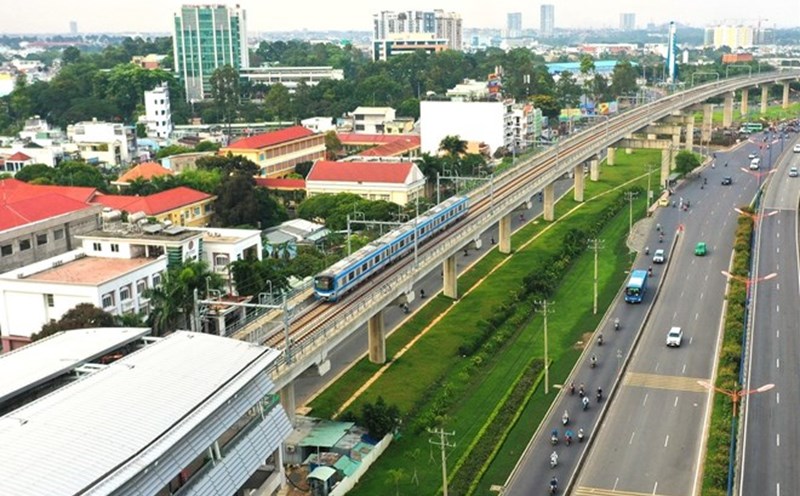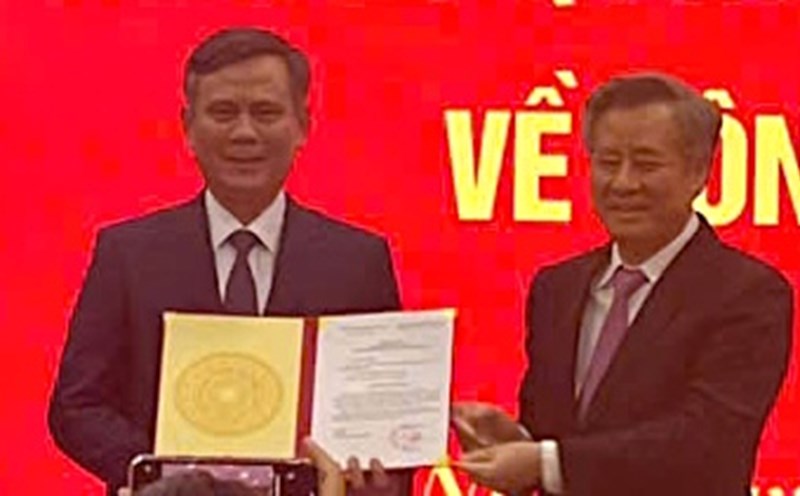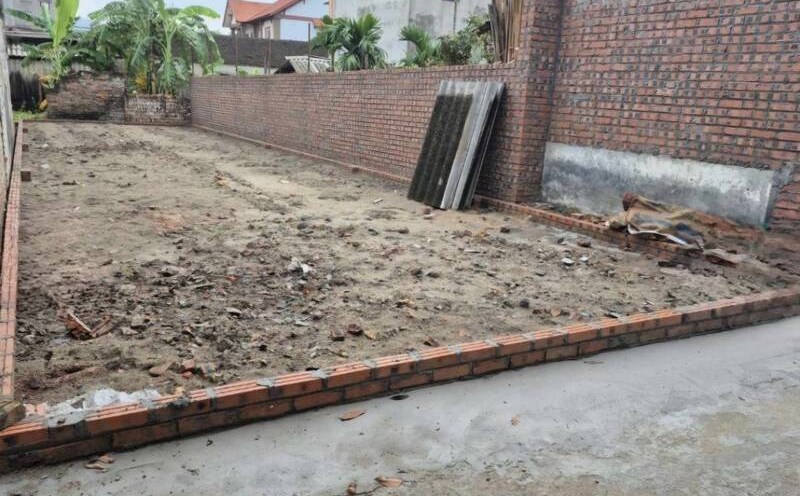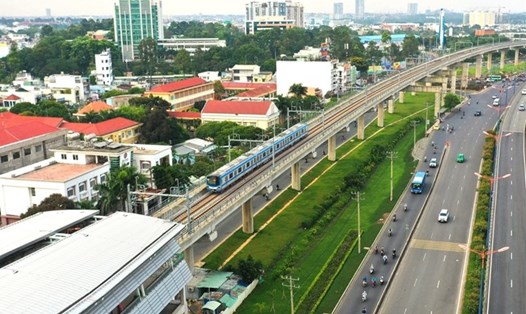Journey of waiting and new hopes
Cao Ngoc Kim Ngan - a student at the University of Social Sciences and Humanities in Ho Chi Minh City, currently living in Thu Duc City, has to travel nearly 20km by motorbike to District 1 to study every day. For Ngan, traffic jams and the pressure of the past have become a constant obsession. "Every morning, I often get stuck in traffic on the main roads, sometimes I'm late for school because the travel time is extended" - Ngan shared.
After experiencing Metro Line 1, Ngan could not hide her excitement. “The train moves fast and conveniently. If Metro Line 1 comes into operation, it will be much more convenient for me and many other students. I hope that the city will soon complete other metro lines to connect synchronously, helping to relieve traffic congestion and improve the quality of life,” Ngan said.
Ngan's story is one of thousands of positive feelings from people who have participated in the metro trial since October 2024.
During the trial run, trains operate at a frequency of 4 minutes 30 seconds to 10 minutes, simulating actual operating situations in preparation for commercial operation. According to the Ho Chi Minh City Urban Railway Management Board (MAUR), Metro Line 1 project has completed 100% of the construction volume. 17 trains have been affixed with inspection stamps, marking their eligibility for operation. Currently, the project is in the stage of system safety assessment and acceptance before the official operation date.
Metro Line 1 will apply a flexible fare policy with many suitable options. Passengers can buy single tickets at prices ranging from 7,000-20,000 VND (cash) or 6,000-19,000 VND (cashless payment). Monthly tickets cost 300,000 VND/person; students receive a 50% discount, down to 150,000 VND/month.
In addition, a daily ticket costs VND40,000/day or a three-day ticket costs VND90,000, with no limit on the number of trips. During the first 30 days of operation, passengers on the metro and 17 connecting bus routes will be exempted from tickets to encourage people to get used to this modern means of transport.
Synchronized connection, optimized experience
Metro Line 1 not only operates independently but is also integrated into the city's public transport system. According to Mr. Ngo Hai Duong - Head of the Road Transport Management Department (HCMC Department of Transport), the Public Transport Management Center has bid and is preparing to put into operation 17 modern bus routes to connect metro stations. At the same time, the city is also expanding connections by public bicycles, technology taxis and 4-wheel electric vehicles at Ben Thanh, City Theater and Ba Son underground stations.
At elevated stations such as Van Thanh, Thao Dien, Rach Chiec, parking systems and connecting walkways have been built to maximize convenience. For example, Van Thanh station has a bus park of 1,596m² and a private parking lot of 770m². Similarly, Binh Thai station has a bus park of 3,000m² and a private parking lot of 1,000m².
Ho Chi Minh City is also investing in 67 more bus shelters, 196 bus stops and many other amenities around metro stations to ensure a synchronous and convenient public transport experience.
Currently, the Ho Chi Minh City Department of Transport is coordinating with the Urban Railway Company No. 1 (HURC1), the Ho Chi Minh City Public Transport Management Center and Mastercard Company to install and test a cashless payment system on a number of bus routes.
It is expected that by early 2025, the inter-ticket system between buses and metro will be put into operation, creating favorable conditions for people when using public transport.
Approved in 2007 and started in 2012, Metro Line 1 is nearly 20km long, connecting the city center to the eastern gateway. The entire line has 11 elevated stations, 3 underground stations, with a total investment of more than 43,700 billion VND.











